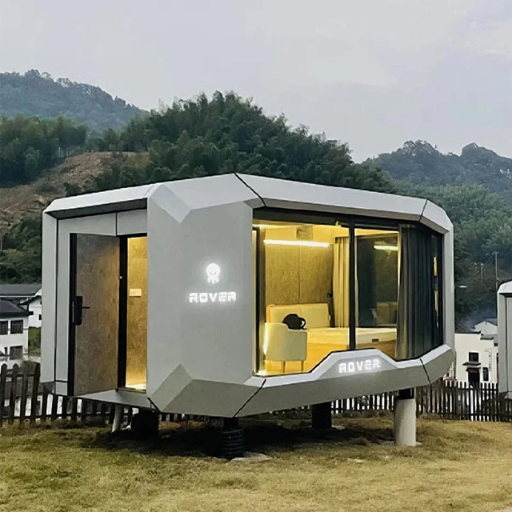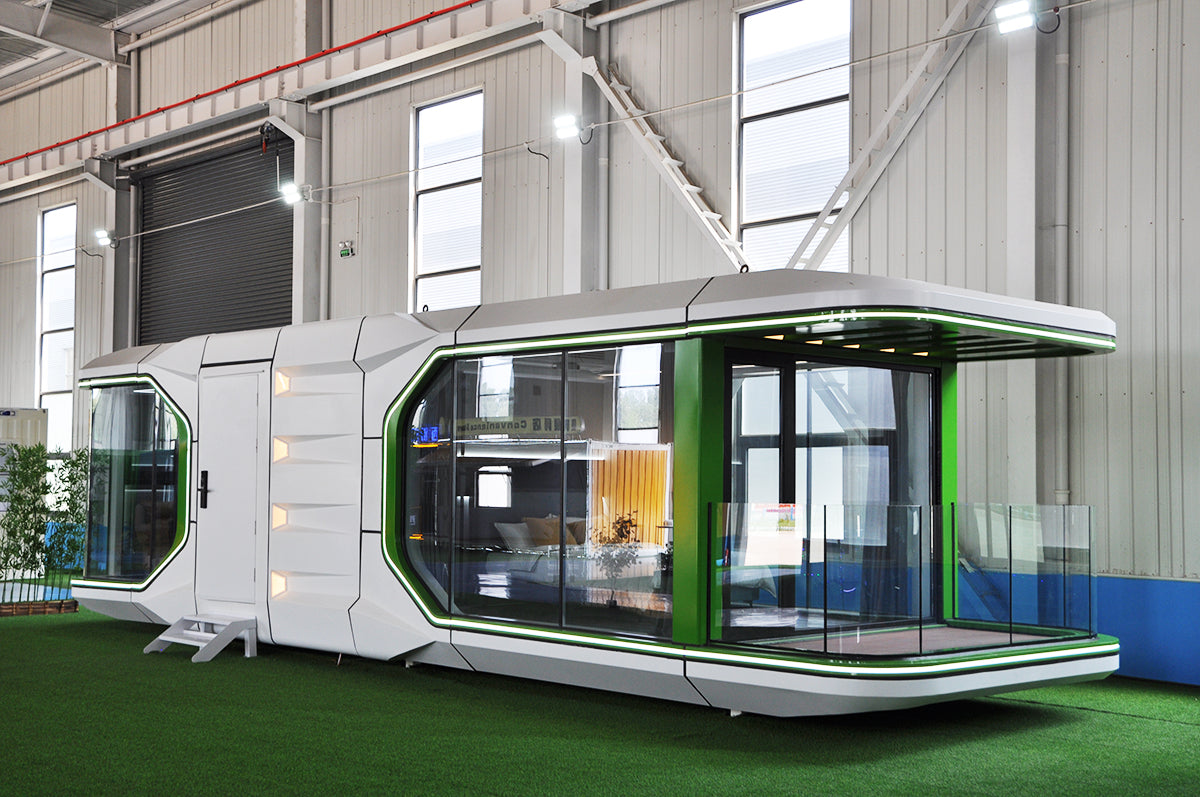How Capsule Houses Offer an Affordable and Efficient Housing Solution
How Capsule Houses Offer an Affordable and Efficient Housing Solution
Blog Article
Why Modular Residences Are the Future of Sustainable Living
Modular homes are significantly acknowledged as a critical option for sustainable living, supplying a mix of efficiency, cost-effectiveness, and ecological advantages. Their construction in regulated environments substantially lowers waste and enhances precision, while the potential for incorporating advanced energy-efficient systems places them as a forward-thinking alternative in housing. Additionally, the adaptability of modular layouts enables for the integration of sustainable technologies and materials tailored to specific demands. As we browse the challenges of urbanization and environmental sustainability, one must consider exactly how these homes might redefine our technique to living rooms.
Environmental Benefits of Modular Homes
The ecological advantages of modular homes represent a significant step towards sustainable living. These homes are built in controlled factory settings, which significantly minimizes waste produced during the building process. By maximizing products and decreasing excess, modular construction adds to a much more efficient use of sources contrasted to traditional building methods.
Additionally, modular homes are often designed with power efficiency in mind. Many include innovative insulation methods, energy-efficient home windows, and lasting materials, adding to reduced power intake. This can cause minimized greenhouse gas emissions over the lifespan of the home, boosting its total ecological profile.
The capacity to transportation and assemble modular parts on-site likewise reduces the carbon impact connected with building and construction logistics. Many modular homes are built to be conveniently upgradeable and adaptable, enabling homeowners to carry out lasting innovations, such as solar panels and energy-efficient heating systems, over time.
Ultimately, the ecological advantages of modular homes not only promote lasting living yet also urge an even more responsible technique to real estate advancement, aligning with global efforts to deal with environment change and maintain natural deposits for future generations.
Cost-Effectiveness and Affordability
Building a home commonly represents one of the largest monetary investments people make in their life time, and modular homes use an engaging option for those looking for cost-effectiveness and cost. Among the main benefits of modular homes is their reduced building and construction prices compared to standard site-built homes. The structured production procedure enables substantial cost savings on labor and materials, which equates to reduce costs for customers.
In addition, modular homes typically have shorter construction timelines. This not just decreases expenditures associated with funding and insurance policy yet likewise minimizes the threats connected with rising cost of living and varying market problems. Lots of purchasers find that modular homes can be customized to fit their budgets without compromising high quality or design.
Moreover, power performance is frequently built right into the style of modular homes, resulting in reduced utility costs with time. Lots of producers prioritize sustainable products and techniques, even more enhancing the long-term financial stability of these homes. Generally, the combination of first price financial savings, fast construction, and recurring energy efficiency makes modular homes an appealing alternative for those seeking to invest in lasting living without breaking the financial institution.
Efficiency in Building And Construction
Modular homes not only supply financial advantages yet likewise excel in building performance. The modular structure procedure involves the synchronised building and construction of modules in a manufacturing facility setup while site preparation takes place concurrently. This identical technique considerably minimizes the overall timeline from conception to completion, often cutting building and construction time by up to half compared to traditional approaches.
Additionally, factory-controlled atmospheres boost quality guarantee. By using accuracy manufacturing techniques, modular homes are developed to exact requirements, minimizing waste and errors. This consistency not just brings about a higher top quality item but also adds to lasting methods by lowering product waste during construction.
In addition, the use of contemporary innovation and automation in the production procedure enables quicker setting up and lowered labor prices. Once the modules are carried to the site, they can be efficiently put together, additionally accelerating the timeline. This structured process is not just beneficial for builders but additionally reduces interruptions to the surrounding atmosphere during construction.
Personalization and Layout Adaptability
An outstanding variety of personalization options differentiates modular homes, allowing property owners to tailor internet their living rooms to meet certain requirements and preferences. This layout adaptability is a hallmark of modular building, allowing clients to pick every little thing from layout and area designs to finishes and components. Unlike traditional homes, modular layouts help with a collaborative strategy where architects and contractors function very closely with home owners, ensuring that each element straightens with aesthetic needs and private way of lives.
Furthermore, modular homes can be conveniently reconfigured or broadened, suiting transforming family members dynamics or advancing personal preferences. This adaptability not just improves the home's capability however additionally adds to long-term sustainability, as house owners can modify their areas rather than seek new housing options.

Future Trends in Sustainable Real Estate
Emerging patterns in sustainable real estate are reshaping the landscape of property construction, highlighting innovative innovations and green methods. One significant pattern is the assimilation of smart home innovation, which boosts energy performance through automated systems that keep an eye on and maximize power usage. This not only decreases energy prices yet also contributes to a lower carbon footprint.
Furthermore, using lasting products is coming to be progressively additional info usual. Builders are selecting recycled, locally sourced, or quickly eco-friendly materials, which reduce environmental effect and support regional economies. Additionally, modular homes are getting appeal for their minimized waste throughout building and construction and their adaptability to different surfaces and climates.
An additional pattern is the unification of environment-friendly roof coverings and living wall surfaces, which enhance air high quality and provide natural insulation. These features additionally advertise biodiversity in metropolitan areas.
Conclusion
In verdict, modular homes become a crucial option for sustainable living, providing significant ecological advantages through reduced waste and power effectiveness. Their cost-effectiveness and affordability attend to the growing real estate demands in city locations, while effective building and construction processes boost general productivity. The inherent modification and style flexibility accommodate varied choices and needs. As patterns in sustainable housing develop, modular homes are poised to play a vital role in promoting environmentally friendly living techniques for future generations.
Structure a home often represents one of the biggest monetary investments people make in their lifetime, and modular homes provide an engaging service for those seeking cost-effectiveness and cost. One of the key advantages of modular homes is their lower building and construction costs compared to conventional site-built homes. On the whole, the combination of initial expense financial savings, quick building and construction, and recurring energy effectiveness makes modular homes an eye-catching alternative for those looking to invest in lasting living without breaking the financial institution.
Inevitably, the customization and design versatility supplied by modular homes guarantee that they are not simply frameworks, yet individualized sanctuaries that reflect the special identities of their occupants while promoting sustainable living methods.

Report this page